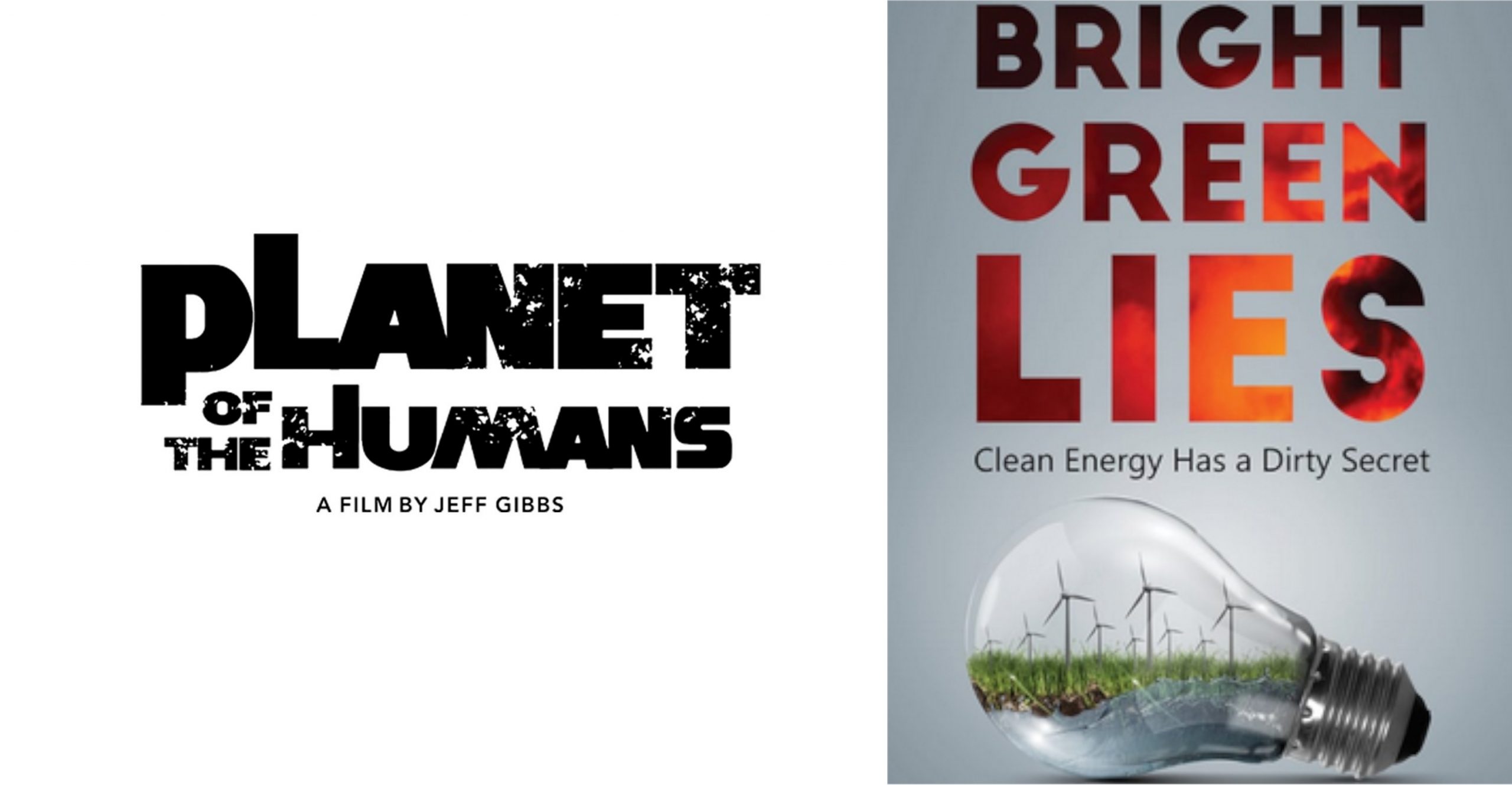Planet of the Humans, an outstanding documentary by Jeff Gibbs and Michael Moore, drew a lot of attention when it was originally published on YouTube for free. But a coordinated censorship campaign lead to it being taken down from YouTube where it had been viewed 8.3 million times.
As Michael Moore wrote on his Facebook page:
“Day 4: Still banned. Our YouTube channel still black. In the United States of America. The public now PROHIBITED from watching our film “Planet of the Humans” because it calls out the eco-industrial complex for collaborating with Wall Street and contributing to us losing the battle against the climate catastrophe. As the film points out, with sadness, some of our environmental leaders and groups have hopped into bed with Bloomberg, GoldmanSachs, numerous hedge funds, even the Koch Bros have found a way to game the system— and they don’t want you to know that. They and the people they fund are behind this censorship. We showed their failure and collusion, they didn’t like us for doing that, so instead of having the debate with us out in the open, they chose the route of slandering the film — and now their attempt at the suppression of our free speech. “Democracy Dies in Darkness.” Fascism is given life when “liberals” employ authoritarian tactics. Or sit back and say nothing. Who will speak up against blocking the public from seeing a movie that a group of “green capitalists” don’t want you to see? Where is the Academy? Where is the International Documentary Association? If you leave us standing alone, your film may be next. What is pictured above could be the darkened screen of your next movie. Do we not all know the time we are living in? All this energy spent trying to save our film when we should be saving the planet — but the green capitalists have once again provided a distraction so that no one will see what they’re really up to, so that no one will call them out for thinking we’re going to end the climate crisis by embracing or negotiating with capitalism. We call BS to that — and that is why our film has vanished. But not for long. We will not be silenced. We, and hundreds of millions of others, are the true environmental movement — because we know the billionaires are not our friends.”
Now the movie is up on YouTube again
[embed]https://youtu.be/Zk11vI-7czE[/embed]
Michael Moore presents Planet of the Humans, a documentary that dares to say what no one else will — that we are losing the battle to stop climate change on planet earth because we are following leaders who have taken us down the wrong road — selling out the green movement to wealthy interests and corporate America. This film is the wake-up call to the reality we are afraid to face: that in the midst of a human-caused extinction event, the environmental movement’s answer is to push for techno-fixes and band-aids. It’s too little, too late. Removed from the debate is the only thing that MIGHT save us: getting a grip on our out-of-control human presence and consumption. Why is this not THE issue? Because that would be bad for profits, bad for business. Have we environmentalists fallen for illusions, “green” illusions, that are anything but green, because we’re scared that this is the end—and we’ve pinned all our hopes on biomass, wind turbines, and electric cars? No amount of batteries are going to save us, warns director Jeff Gibbs (lifelong environmentalist and co-producer of “ Fahrenheit 9/11” and “ Bowling for Columbine"). This urgent, must-see movie, a full-frontal assault on our sacred cows, is guaranteed to generate anger, debate, and, hopefully, a willingness to see our survival in a new way—before it’s too late. https://planetofthehumans.com/
Bright Green Lies
From Julia Barnes, the award-winning director of Sea of Life, Bright Green Lies investigates the change in focus of the mainstream environmental movement, from its original concern with protecting nature, to its current obsession with powering an unsustainable way of life. The film exposes the lies and fantastical thinking behind the notion that solar, wind, hydro, biomass, or green consumerism will save the planet. Tackling the most pressing issues of our time will require us to look beyond the mainstream technological solutions and ask deeper questions about what needs to change.
The movie is available on Vimeo:
